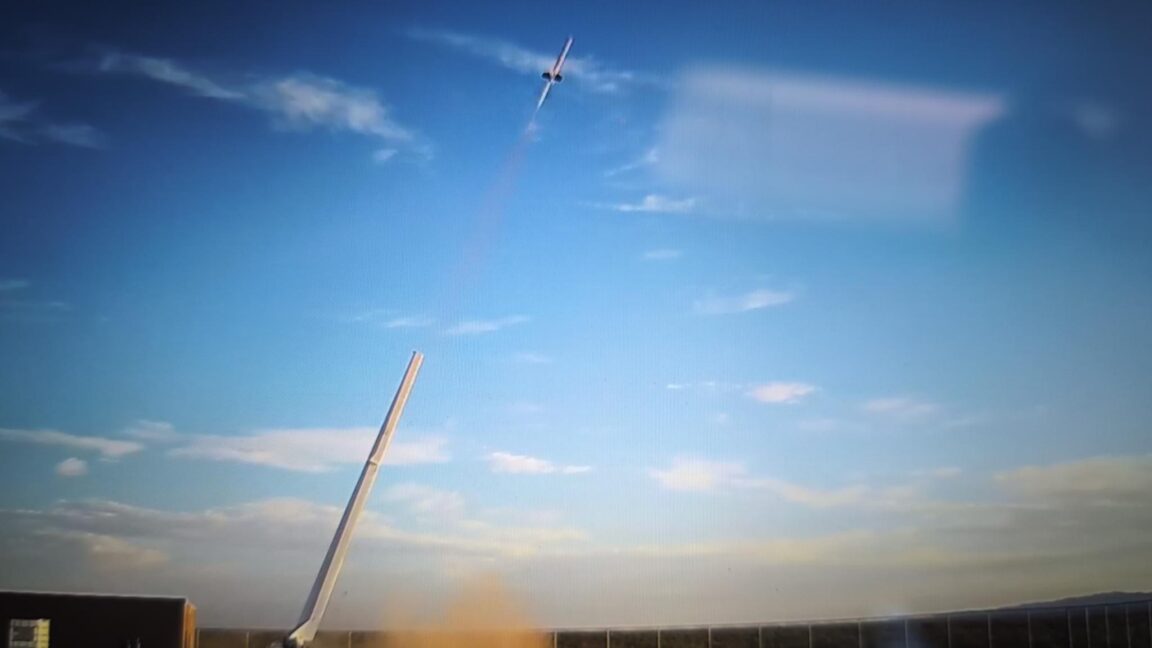"Hypersonics is one of the critical technologies to remain ahead of our national competitors."
A US-based propulsion company, Venus Aerospace, said Wednesday it had completed a short flight test of its rotating detonation rocket engine at Spaceport America in New Mexico.
The company's chief executive and co-founder, Sassie Duggleby, characterized the flight as "historic." It is believed to be the first US-based flight test of an idea that has been discussed academically for decades, a rotating detonation rocket engine. The concept has previously been tested in a handful of other countries, but never with a high-thrust engine.
"By proving this engine works beyond the lab, Venus brings the world closer to a future where hypersonic travel—traversing the globe in under two hours—becomes possible," Duggleby told Ars.
A quick flight
The company has only released limited information about the test. The small rocket, powered by the company's 2,000-pound thrust engine, launched from a rail in New Mexico. The vehicle flew for about half a minute, and, as planned, did not break the sound barrier.
Governments around the world have been interested in rotating detonation engine technology for a long time because it has the potential to significantly increase fuel efficiency in a variety of applications, from Navy carriers to rocket engines.
In contrast to a traditional rocket engine, in which a highly pressurized propellant and an oxidizer are injected into a combustion chamber where they burn and produce an energetic exhaust plume, a rotating detonation engine is different in that a wave of detonation travels around a circular channel. This is sustained by the injection of fuel and oxidizer and produces a shockwave that travels outward at supersonic speed.
Sassie Duggleby and her husband, Andrew Duggleby, founded Venus Aerospace nearly five years ago with the long-term goal of developing powerful rotating detonation engines and building a hypersonic aircraft that could carry perhaps a dozen passengers and travel at astonishingly fast speeds worldwide.
Aiming for hypersonics in the near term
Such a prospect is many years into the future, however. In the meantime, Venus is looking at more near-term opportunities and revenue sources. The company is seeking to position itself as a leader in affordable hypersonic flight for commercial and defense applications.
"It is vital for US interests that the government continues to fund efforts to maintain America’s economic competitiveness and national security," Sassie Duggleby said. "Hypersonics is one of the critical technologies to remain ahead of our national competitors. We’re fortunate to have robust interest from both government and commercial sectors."
Sassie Duggleby said Venus cannot disclose specific customers yet.
"We're actively engaged with US defense and national security agencies as well as commercial partners exploring hypersonic applications in logistics, aerospace, and future mobility—including large primes," she said. "The enthusiasm we’re seeing reflects a broad recognition that Venus’s technology can unlock new operational and economic possibilities across multiple markets."
Venus has a long way to go to reach its ultimate goal of highly efficient, hypersonic commercial flight. But the engine that flew this week is a good start toward proving that such a future, at least, is possible.
Hope you enjoyed this news post.
Thank you for appreciating my time and effort posting news every day for many years.
News posts... 2023: 5,800+ | 2024: 5,700+ | 2025 (till end of April): 1,811
RIP Matrix | Farewell my friend ![]()
- Mutton and coopers
-

 2
2



3175x175(CURRENT).thumb.jpg.b05acc060982b36f5891ba728e6d953c.jpg)
Recommended Comments
Join the conversation
You can post now and register later. If you have an account, sign in now to post with your account.
Note: Your post will require moderator approval before it will be visible.